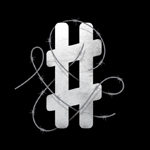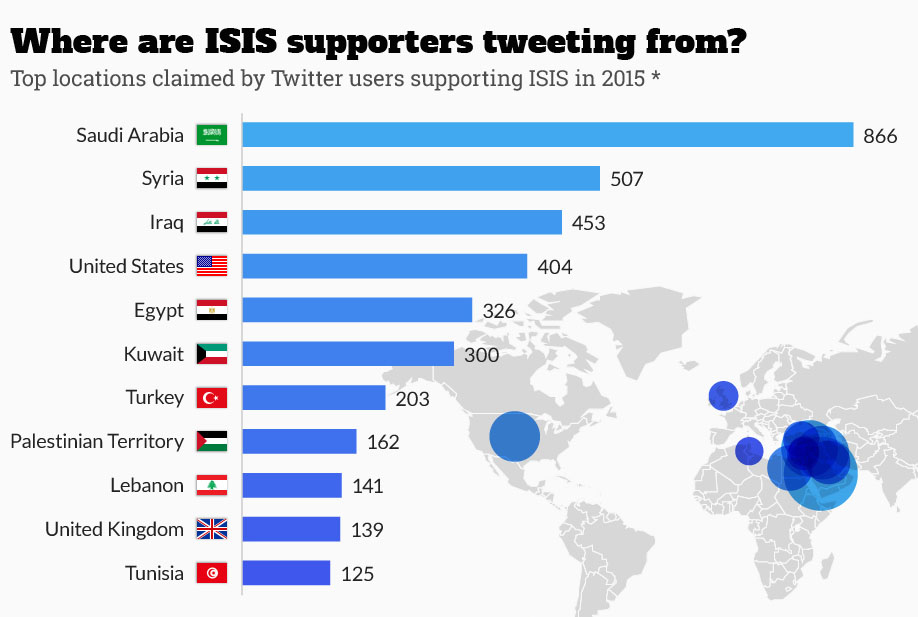 Three social media networks are helping the U.S. government to fight online propaganda. Facebook, Google and Twitter are using their own policies to reduce ISIS, terrorism and their recruit attempt on their dedicated platforms.
Three social media networks are helping the U.S. government to fight online propaganda. Facebook, Google and Twitter are using their own policies to reduce ISIS, terrorism and their recruit attempt on their dedicated platforms.
The internet tech companies are delivering their attempts quietly in order to avoid the perception that they're helping the authorities.
French Prime Minister and European Commission officials met separately with Facebook, Google and Twitter, asking for them to counter the terrorists by delivering faster actions on what they called "online terrorism incitement and hate speech."
Hillary Clinton also asked Facebook, YouTube and Twitter to help the government with the fight against ISIS and their online promoting efforts. Her remarks came four days after a married couple killed 14 peoople and injured 21 others in a mass shooting in San Bernardino, California.
Officials have said that the two suspects, Syed Farook and his wife Tashfeen Malik, were inspired by ISIS, while ISIS themselves have praised the killings.
"They cannot permit the recruitment and the actual direction of attacks or the celebration of violence by this sophisticated Internet user," Clinton said about the social networking sites. "They're going to have to help us take down these announcements and these appeals."
The Online Fights Against Terrorism
ISIS have used the internet, and mostly social media networks, to deliver their propaganda and getting more members. What Facebook, Google, Twitter, YouTube and other social media networks can do is to eliminate any content types in accordance to their own terms of services. They themselves are still required to have court orders to remove or block anything beyond that.
The social networks are also giving their users to help them in case they missed. Anyone can report or flag contents for the companies to review and do any possible removal. Like for example YouTube with its little-known "Trusted Flagger" program that allows people to flag videos to get immediate action.
Despite the fight against terrorism on the web is essentially easier when the tech companies and the government are in allies, the truth is somehow complicated.

The problem here lies in the global nature of social media, the reliance of self-policing by users to identify objectionable content, and the fact that many of those banned people would simply open a new account and continue posting their propaganda. Banning anything that deliver hatred, violence or fear, could lead to questions of censorship. This is because one person's propaganda could be another person's freedom of speech.
Companies like Facebook and others are trying to draw a distinction between the two. But it's just not that simple.
Tech companies are businesses on their own, and they have to limit the information they are asked to give because it may hurt their business.
Furthermore, according to a former employee of one of the the social networks, if the public know the true level of cooperation between the tech companies and the government, the social media networks will face endless demands for similar actions from other countries around the globe.
By doing so, they'll be regarded as "tools" of the government, or something that they've been trying to avoid. And for the worse, if the public knows how their techniques work, the companies will face risky challenges from competitors and the terrorists' tech militants which will then know how to beat their systems.
"If they knew what magic sauce went into pushing content into the news feed, spammers or whomever would take advantage of that," said a security expert who had worked at both Facebook and Twitter.
In order to limit the government in exploiting their services, and to limit what spammers and others can do to hurt their business, while fighting terrorists at the same time, Facebook and other social media networks can only do things that were previously described in their terms of service and policies. With these, they can publish regular transparent reports to the officials, and able to put down any harmful contents in hours or minutes without court order.
As an example, Facebook said that it took down Malik's profile, which was created under an alias, for violating its community standards, which prohibit praise or promotion of "acts of terror."
"It is commonplace for federal authorities to directly contact Twitter and ask for assistance, rather than going through formal channels," said an activist who has helped the social networks and government allies in getting numerous terrorist accounts disabled.
Related: The U.S. Government And ISIS In a Cat-And-Mouse Game on Twitter
The Attempts Going Beyond
While Facebook and other online tech companies are trying to eliminate any propaganda, there are always the chances that some information will stay online for a few hours before being taken down. During that time, the terrorist organization can deliver their message fast and clear even before the social media networks, their users, and even the government, are aware of their existence.
What many officials and activists would like the internet companies to do, is to stop banning contents from being shared in the first place. If this is possible, any contents that promote terrorists and their propaganda should be blocked once and for all, disabling their attempts to deliver anything on the social media networks.
While this is actually the best way to fight ISIS and other terrorist related activities, the attempt would pose a tremendous technological challenge as well as policy shift.
Tech has been trying to limit and block child pornography by identifying previous known images, tagging them by hashes, and prevent the similar ones from being uploaded or shared. The same goes to copyrighted musics.
But there is no such thing as a database of violent acts. Government or tech companies haven't found a way to limit violence with algorithms. For example, one of the difficulties is that any of those materials can pass scrutiny when they're delivered as a part of news broadcast. There is yet a way created to eliminate a content from being posted in the first place.
Nicole Wong, a former White House's deputy Chief Technology Officer, said tech companies would be reluctant to create a database of jihadists videos, even if it could be kept current enough to be relevant, for fear that repressive governments would demand such set-ups to pre-screen any content they do not like.
"Technology companies are rightfully cautious because they are global players, and if they build it for one purpose they don't get to say it can't be used for anything else," he said.
"If you build it, they will come - it will also be used in China to stop dissidents."
While deleting accounts and removing threatening and fear-inducing posts on social media networks is a continuous work that won't seem to end, this is actually limiting their moves online and indeed decrease their possible reach in delivering their message. This in turn will make it harder for ISIS to accomplish its goals, at least on the web.